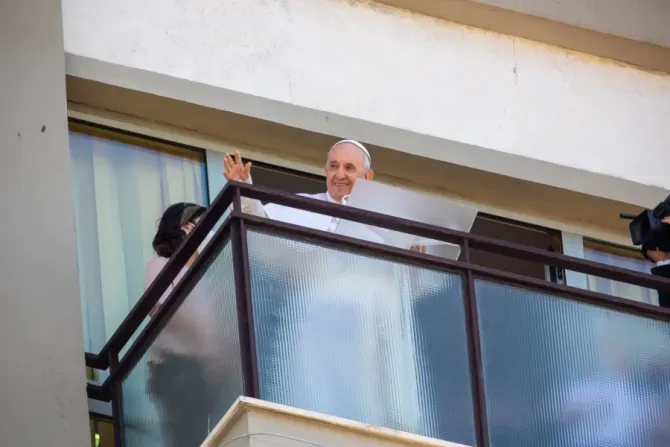The Vatican confirmed earlier this week that the 84-year-old pope had suffered a “severe” narrowing of the colon.
A 10-person medical team was involved in Francis’ surgery, which was carried out under general anesthesia, lasted about three hours and included a left hemicolectomy, the removal of one side of the colon.
The Vatican spokesman said July 5 that the pope was expected to spend seven days recovering in the hospital, “barring complications.”
Pope Francis has been recovering on the 10th floor of the sprawling polyclinic in a wing reserved for papal medical emergencies.
It is the same room where John Paul II stayed during many of his hospital treatments, including for a colon surgery in 1992 and his hospitalization after being shot in an assassination attempt in 1981.
(Story continues below)

This is Francis’ first major operation during his pontificate. In 2019, he had an outpatient surgery for cataracts and he occasionally suffers from flare-ups of sciatic pain.
After praying the Angelus with the crowd, the pope said that he has prayed for the people of Haiti after their president was assassinated on July 7.
“I join in the heartfelt appeal of the country's Bishops to ‘lay down your arms, choose life, choose to live together fraternally in the interest of all and in the interest of Haiti,’” he said.
“I am close to the dear Haitian people; I hope that the spiral of violence will end and the nation will be able to resume its journey towards a future of peace and harmony.”
Speaking from the hospital balcony, the pope also thanked everyone who has prayed for him during his hospitalization.

“I have felt your closeness and the support of your prayers. Thank you from the bottom of my heart,” he said.
Pope Francis reflected on this Sunday’s Scripture reading from chapter six of the Gospel of Mark in which Jesus’ disciples “anointed with oil many that were sick and healed them.”
He said: “This ‘oil’ makes me think of the sacrament of the Anointing of the Sick, which gives comfort to spirit and body. But this ‘oil’ is also listening, the closeness, the care, the tenderness of those who take care of the sick person: it is like a caress that makes you feel better, soothes your pain and cheers you up.”
“Sooner or later all of us, all of us, need this ‘anointing’ of closeness and tenderness, and we can all give it to someone else, with a visit, a phone call, a hand outstretched to someone who needs help.”
Courtney Mares is a Rome Correspondent for Catholic News Agency. A graduate of Harvard University, she has reported from news bureaus on three continents and was awarded the Gardner Fellowship for her work with North Korean refugees.











